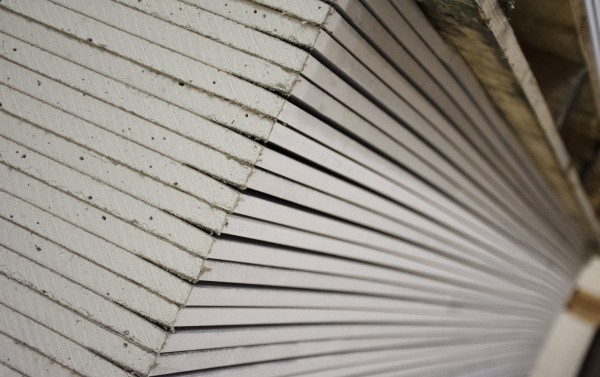Five ways to reduce waste on your self-build
Do your bit for the planet and save money while you’re doing it? Sounds too good to be true doesn’t it. A little bit of planning ahead can help to reduce CO² emissions, generate income from collecting materials and reduce costs by purchasing less material and maximising skip space.
Choose green building materials
Think about the insulating materials you could use on your self-build project.
Saint-Gobain Isover, for example, manufactures and supplies glass mineral wool (GMW) insulation – a material manufactured of up to 80 per cent recycled glass. Products manufactured by Saint-Gobain Isover have a small carbon footprint thanks to the company’s BES 6001 ‘Good’ rated Responsible Sourcing and the manufacturing processes involved.
Selecting eco-friendly materials like sheep’s wool, wood fibre and recycled newspaper means they can be reused, recycled and are fully biodegradable. Always plan in advance what materials are required for your build to reduce the risk of over-ordering. Check that all materials are handled correctly on site to avoid damage that could inadvertently lead to waste.
Find out more about insulation in our handy Guide to Insulation.

Reuse and recycle
Building sites can be a treasure trove of unused and salvaged materials.
Self-builder Andrew Theasby managed to raise cash for his North Yorkshire build project after salvaging materials from an old cottage on his plot.
Brickwork, fireplaces, doors, old joists, flooring and a staircase were saved – earning him more than £5,000 – which helped get ahead with his mortgage stage payments.
Andrew explains: “Nothing was put in a skip! The old joists and floorboards were treated for woodworm and used to build a log store for a friend. The staircase went into a local barn and we sold the doors and fireplaces to a nearby house undergoing refurbishment. I placed a sign up so passing traffic could stop off.”
Decide which materials can be recycled, donated or resold. Timber and concrete, for example, require different recycling methods while scrap metal can be sold on to generate revenue for your project. Why not stockpile crushed materials from early phases of a project to reuse later on?
Read more about Andrew's self-build journey in our case study here.

Cut out the cardboard
You’ll find that the amount of cardboard generated on your self-build site is high. It’s something that’s overlooked but many products will arrive fully packaged in card. You could reduce this waste stream by asking suppliers to deliver materials and products in returnable containers (such as pallets or bulk bags) or why not do your research and select materials that are delivered with minimal or no packaging.
Separate waste
Think about how your waste is separated and stored – this is essential for effective construction waste costs management. You could introduce a secure on-site waste storage area that features clearly labelled and colour-coded skips, bulk bags or wheelie bins for different types of waste. You could use a mini crusher and screener for leftover bricks and blocks.
Keep materials for recycling clean, dry and separate from other materials or waste. Where space on site is limited ask your waste contractor if they can sort your waste at their facility for recycling. Don’t use a waste contractor if you cannot verify that their waste licences are relevant and in date. Never burn or bury waste to dispose of it.
Talk the talk and walk the walk
Great communication between everyone working on your project can help with waste reduction. Collaborating with your suppliers, contractors, designers and engineers can help reduce waste during your build. Designers need to liaise with both client and contractors, who will then hopefully communicate with subcontractors on identifying waste streams, reusing materials and putting waste minimisation in place.
Chat to your contractors and find out whether they have any trade tips they can share. Ask your waste contractor how they can help you to recycle. Shop around to find out which service suits your site best, giving a high waste recovery rate, for the right cost.


